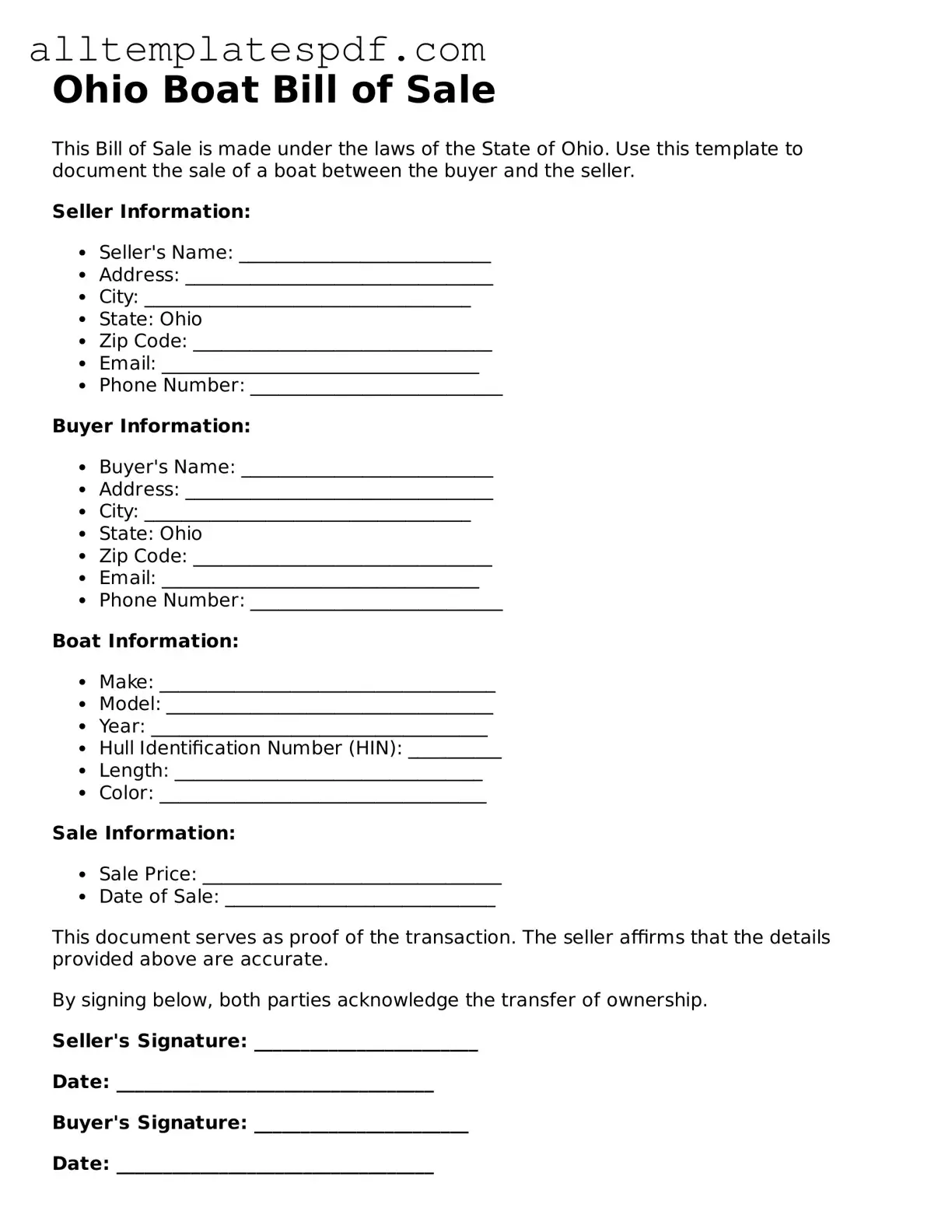Blank Boat Bill of Sale Template for the State of Ohio
The Ohio Boat Bill of Sale form is a crucial document that serves as a legal record of the sale and transfer of ownership of a boat in Ohio. This form not only protects both the buyer and the seller but also ensures that all necessary information is documented for future reference. If you're ready to facilitate a smooth transaction, fill out the form by clicking the button below.
Open Editor

Blank Boat Bill of Sale Template for the State of Ohio
Open Editor
Fast and easy form completion
Complete Boat Bill of Sale digitally — fast and easy.
Open Editor
or
↓ Boat Bill of Sale PDF Form
